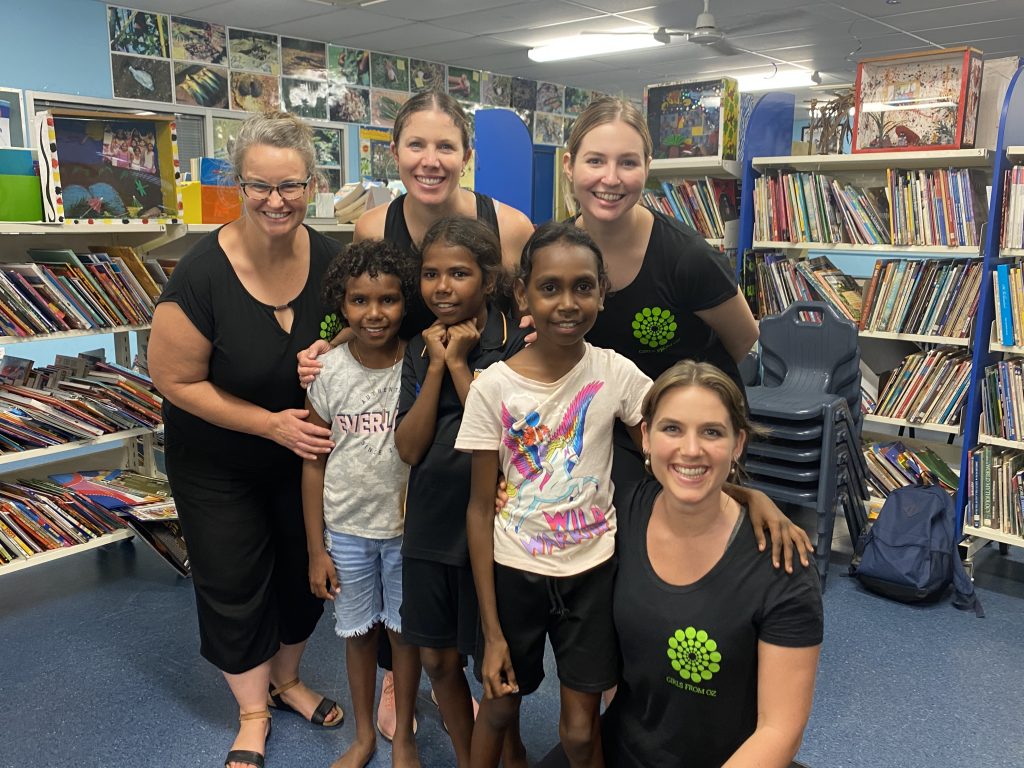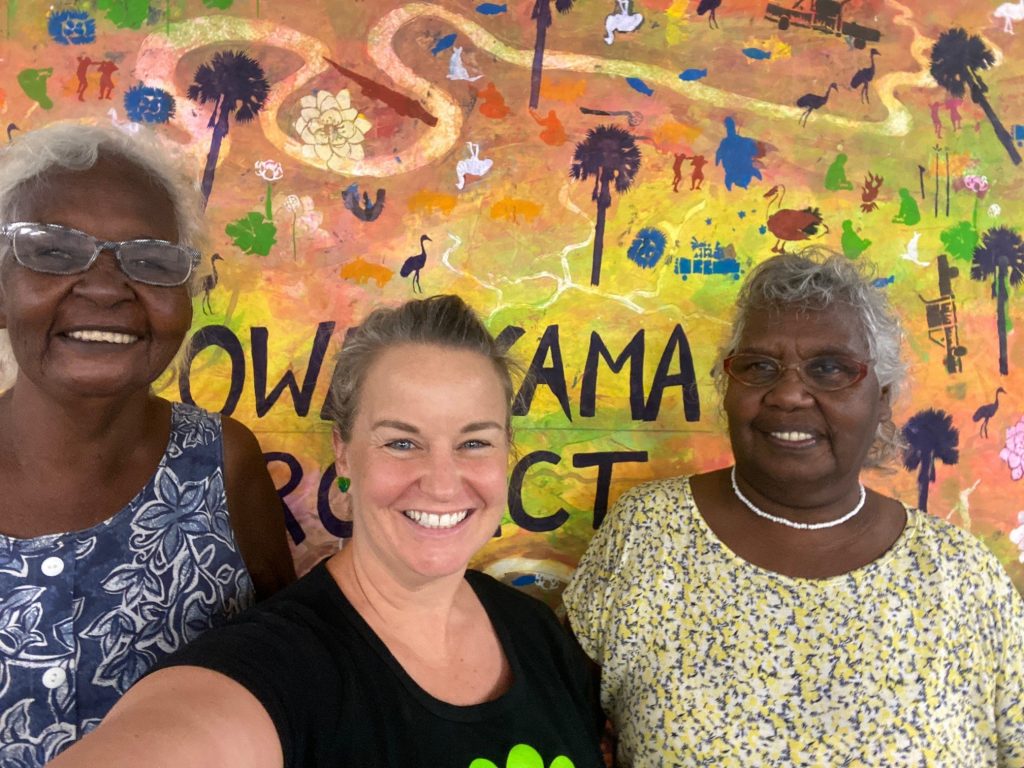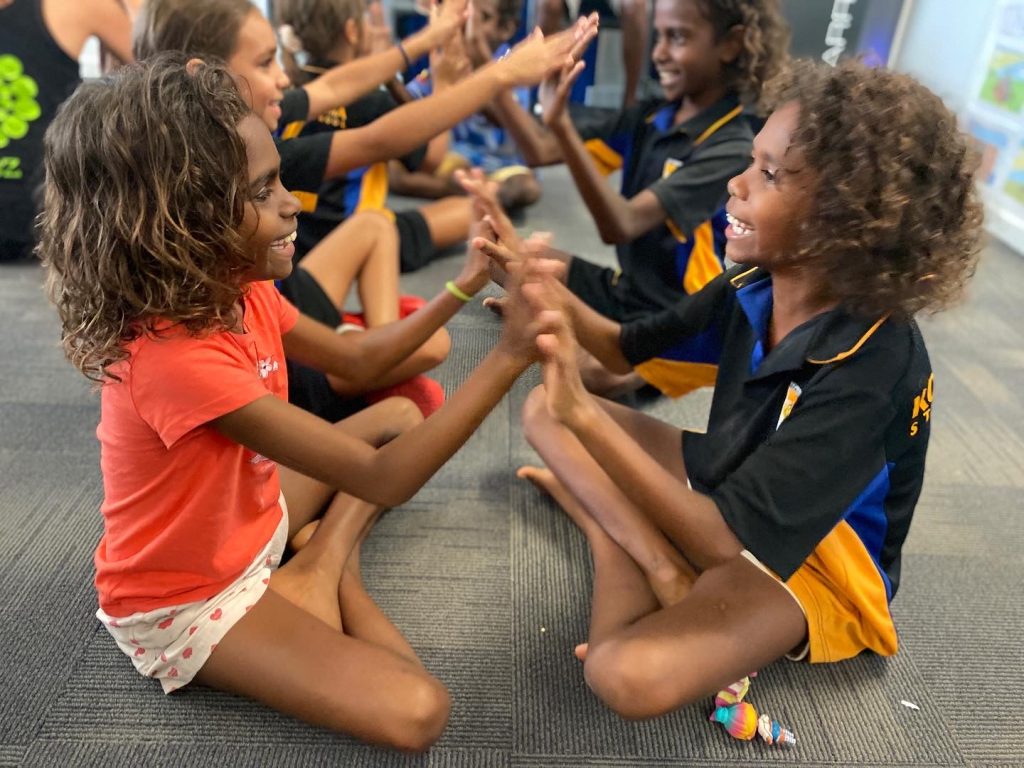Community stories: 12 December 2022
Girls from Oz (g-oz) is committed to improving education and employment outcomes for students in remote Australia, particularly Aboriginal girls and women. The g-oz program uses a tried and tested engagement model, developed over 30 years by the Australian School of Performing Arts, to engage and re-engage females living in some of the most at-risk communities in Australia.
Since 2010, more than 200 girls have participated in 14 trips to five capital cities for a week of shared cultural exchange and 105 instructors have assisted in running 126 week-long Community Programs, engaging more than 4,000 girls across five communities.
In 2022, FRRR contributed $9,212 via a Strengthening Rural Communities grant funded by Friends of FRRR and FRRR towards the g-oz ‘Helping to keep language alive in Kowanyama’ project. The aim of the project is to contribute to Kowanyama State School’s efforts to reintroduce the traditional languages of Kowanyama. To complement the initiative, g-oz has begun its support of language preservation and revitalisation via the completion of song translation and transcription.
Over the past four months, g-oz has been meeting and working with local female Elders each school term as part of their Community Program visits. Their instructors have had some great conversations and have identified a song that they can work together with the women to transcribe, record and teach in the traditional language.
g-oz has found that building trusted relationships and working in collaboration with the local women can be a slow process. As their goal is to support the ambitions of the women in the delivery of their language revitalisation project, and especially their work with school students at Kowanyama State School, g-oz plans to walk alongside them, working within the Elders’ timeframe to deliver the project.
g-oz plans to develop teaching resources as part of the recording process and to present the finished songs to the community in May, with monitoring and evaluation to be undertaken before the conclusion of the project in August 2023.




